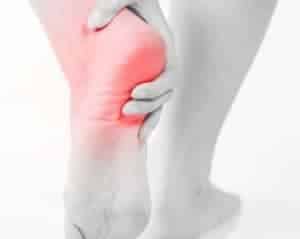Plantar Fasciitis refers to inflammation of the fibrous tissue that exists through the bottom portion of your foot and connects your heel bone to your toes. Patients who sustain this condition often experience significant pain in their heels.
All people, regardless of age or ethnicity, can experience Plantar Fasciitis. Consider the following information that highlights the ins and outs of Plantar Fasciitis and how our Atlanta orthopedic doctors can help treat this condition.
Defining Plantar Fasciitis
The plantar fascia is responsible for connecting your heel bones to your toes and helps support the arch of your foot. When this particular part of the foot is strained or stressed it can become inflamed, which makes basic activities like walking very painful or impossible to perform. Plantar Fasciitis is the leading contributor to heel pain.
Who Is Affected By This Condition?
Although everyone is susceptible to Plantar Fasciitis, it is most commonly found within avid runners, those who are overweight or obese, pregnant women, and those who wear inappropriate footwear.
What Are The Symptoms Connected To Plantar Fasciitis?
The primary symptom associated with this condition is heel pain that resonates with patients as either sharp or dull. Such pain tends to peak during the morning hours or after applying weight to the affected area such as when walking up stairs or after participating in an extraneous activity.
Orthopedic Tips for Treating Plantar Fasciitis
If you experience heel pain, contact our office right away to have an experienced orthopedic doctor examine the area and provide appropriate treatment. Early detection and treatment offers the best chance of experiencing a complete, safe recovery. Other basic tips for treating this condition include:
- Give yourself plenty of time to rest and avoid running or other physical activities for some time
- Take a light over-the-counter anti inflammatory medication such as Acetaminophen or ibuprofen
- Perform light heel and foot stretches
- Utilize a splint during the night time to help stretch the arch of your foot while you rest
- Apply an ice pack or bag to the affected area twice each day for at least ten minutes
- Wear foot wear that provides plenty of support or ask a doctor about obtaining orthotics to help distribute your body’s weight more evenly across your feet
Recovering from Plantar Fasciitis can take up to nine months depending on the extent and severity. It is best to work with an experienced orthopedic doctor to ensure that all relief efforts taken are safe and appropriate for your needs. For immediate support and treatment, dial (404) 855-2141 to schedule an examination.





